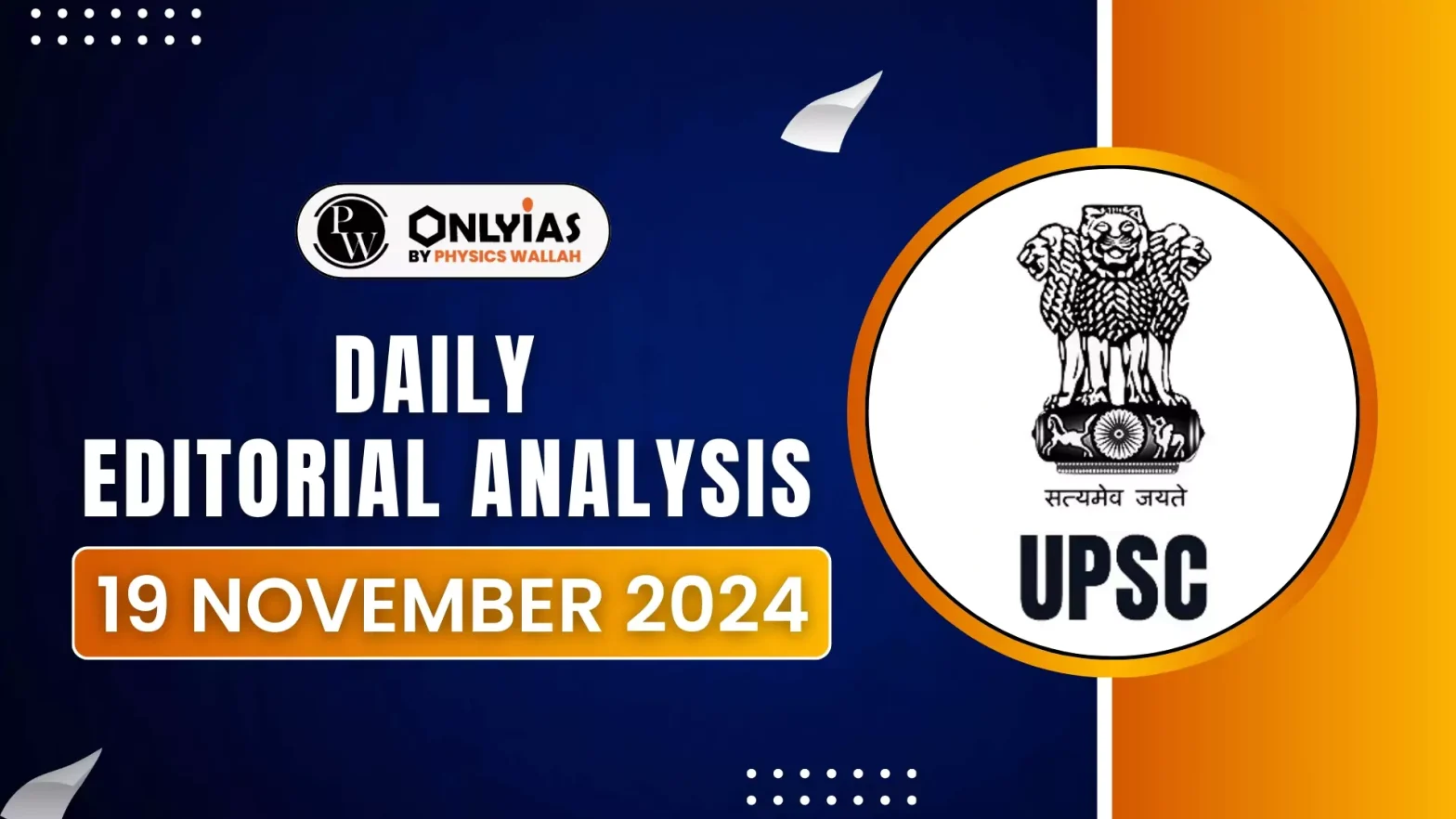Elon Musk’s venture Starlink may gain easier regulatory entry into India, as his association with newly re-elected US President Donald Trump strengthens his negotiating position for favourable policies.
Elon Musk’s Alliance with Trump
- Support in Campaign: Musk’s open support for Trump comes as little surprise, given his public backing during the campaign, including reported contributions exceeding $100 million.
- DOGE: Elon Musk and entrepreneur Vivek Ramaswamy will lead the newly proposed Department of Government Efficiency (DOGE) under the Trump administration,
- It aims to streamline bureaucracy, reduce regulations, curb wasteful spending, and restructure federal agencies.
Enroll now for UPSC Online Course
Starlink Project
- Starlink is a SpaceX owned internet satellite service that lets users enjoy high speed internet even in the most remote and inaccessible regions of the world.
- Starlink uses a constellation of satellites in low Earth orbit (LEO) to beam internet signals directly to users’ homes on earth, unlike traditional cable systems.
- This lower orbit reduces latency, which allows for faster internet speeds.
- Current Scale and Progress of the Starlink Project
- Satellites Launched: Over 7,000 satellites launched within five years, accounting for two-thirds of all active satellites globally.
- Future Plans:
- 10,000 satellites planned for deployment over the next three years to accelerate expansion.
- Ambitious goal of 42,000 satellites by the end of the decade.
- Milestones:
- In 2019, SpaceX launched 60 Starlink satellites using specialised Falcon 9 rockets.
- Satellite launches now occur approximately every two weeks, highlighting rapid progress.
- Impact of Starlink Satellites: The influence of Starlink satellites is increasingly visible on the world stage:
- Ukraine War: It donated 12,000 terminals to restore military communications and civilian internet access disrupted by Russian attacks.
- Gaza Conflict: It provided emergency connectivity during internet blackouts, aiding humanitarian efforts and coordinating medical assistance.
Timeline of Starlink’s developments in India
- Pre 2021 Order Phase: Starlink began accepting pre-orders in India, with a refundable deposit of ₹7,400.
- However soon enough, the Telecom Regulatory Authority of India (TRAI) raised objections to Starlink‘s operations, citing that the company did not have the required licences or regulatory approvals to offer satellite-based broadband services in India.
- Government action: By this time, Starlink had already taken around 7,000 pre-orders in India which were then cancelled and the money was refunded.
- 2024 New Developments: Government has revised the regulatory framework and changed spectrum allocation policy.
- It is open to granting a licence if Starlink meets all regulatory conditions, including addressing security concerns.
Recent Changes in Spectrum Policy in India:
- The Indian government has introduced a new administrative method for spectrum allocation, allowing space satellite operators to provide internet services in the country, unlike traditional auctions.
- The spectrum for satellite services will be allocated administratively, though it will not be without cost.
- The pricing and allocation formula will be determined by the Telecom Regulatory Authority of India (TRAI).
- This change is seen as advantageous for companies like SpaceX, as satellite services typically involve expensive auction processes that raise costs for operators.
- With administrative allocation, the entry barrier for satellite service providers will be lower, fostering a more competitive and level playing field.
- This shift is being praised for its technological neutrality.
- However, it has also faced opposition from major telecom companies like Reliance and Airtel who suggested doing it through auctions.
|
Check Out UPSC NCERT Textbooks From PW Store
Concerns Associated with Starlink
- Data Colonialisation Risks: The use of foreign satellite services like Starlink raises concerns about data storage on foreign servers, risking user privacy, national security, and sovereignty.
- Past incidents, such as Facebook’s 2006 data breach, WhatsApp spyware in 2019, and Twitter’s 2023 security flaws, underscore the dangers of such vulnerabilities.
- Pricing Concerns: Starlink’s pricing—₹7,500/month and ₹45,000 for equipment—is 30 times higher than local providers, making satellite internet a luxury akin to premium products like Apple devices.
- Fear of Monopoly: Starlink may lower prices over time, intensifying competition with local players like Airtel and Jio.
- This could risk monopolistic practices, leaving India vulnerable during geopolitical tensions or disruptions.
Potential Benefits of Starlink
- Rural Connectivity: Starlink has the potential to connect 250,000 villages in India, significantly improving access to digital services, especially in remote areas.
- Economic Growth: Expanding internet access could boost India’s digital economy, open up new business opportunities, and create jobs in underserved regions.
- Technological Advancement: The introduction of satellite internet services could spur innovation in space technology, increase research and development, and foster skills development within the sector.
While these benefits are promising, there is a need to ensure that India does not become overly reliant on foreign companies for such critical services. The country must also build its own capabilities in satellite internet infrastructure.
Indigenous Development Efforts
India has already initiated several indigenous efforts to develop its satellite internet capabilities:
- ISRO-Hughes Satellite Program: This initiative uses 48 transponders with Ka-band technology to improve rural connectivity.
- Private Sector Initiatives: Partnerships like OneWeb-Bharti and plans by Tata and L&T’s space technology division are making progress in satellite internet services.
- Startup Ecosystem: Several Indian startups are exploring innovative satellite internet solutions, although they are still in the early stages of development.
Enroll now for UPSC Online Classes
However, these initiatives are currently operating at a small scale. The government must play an active role in supporting capacity development and scaling up these efforts to build a self-sustaining satellite internet ecosystem in India.
![]() 19 Nov 2024
19 Nov 2024

